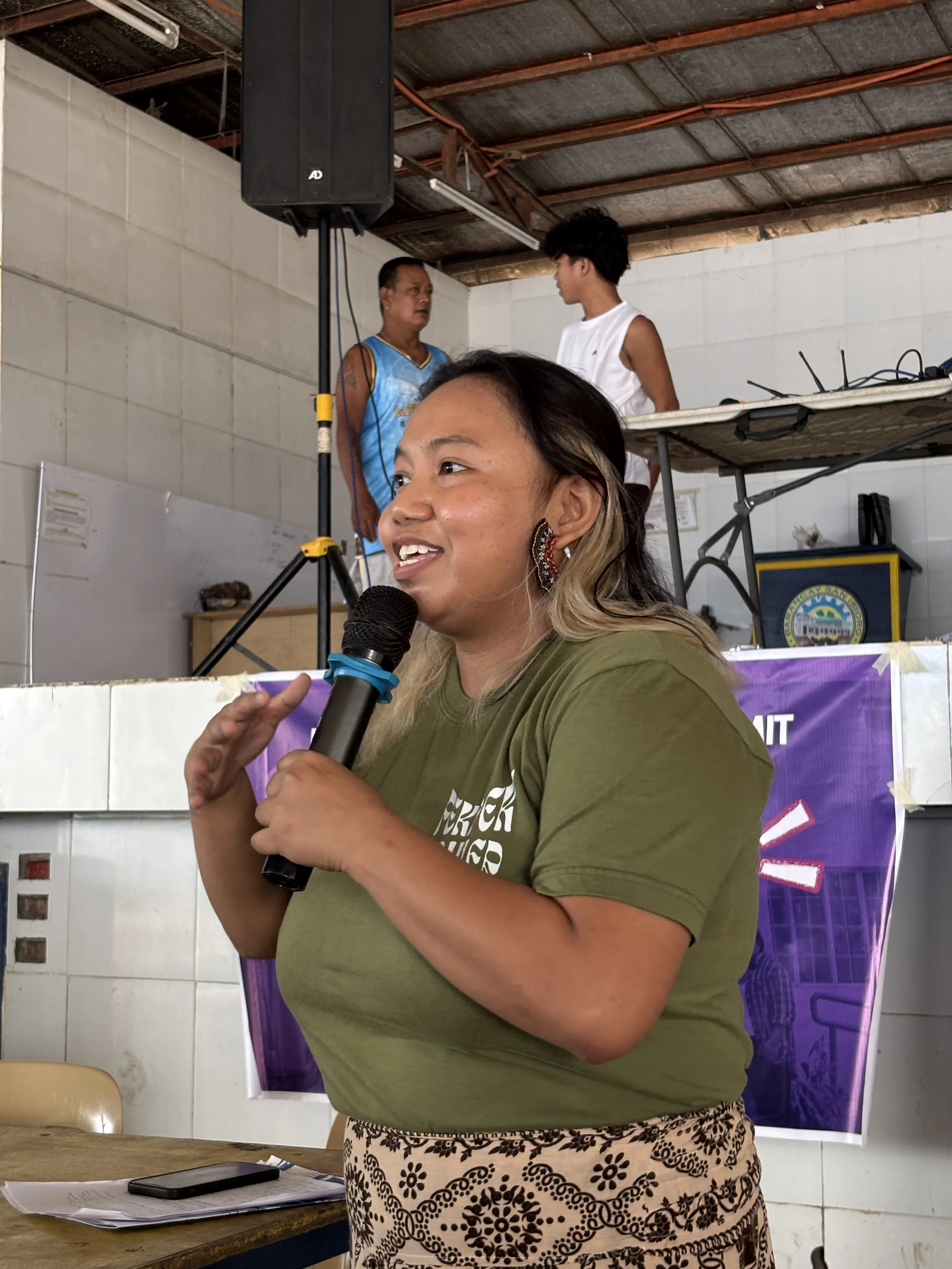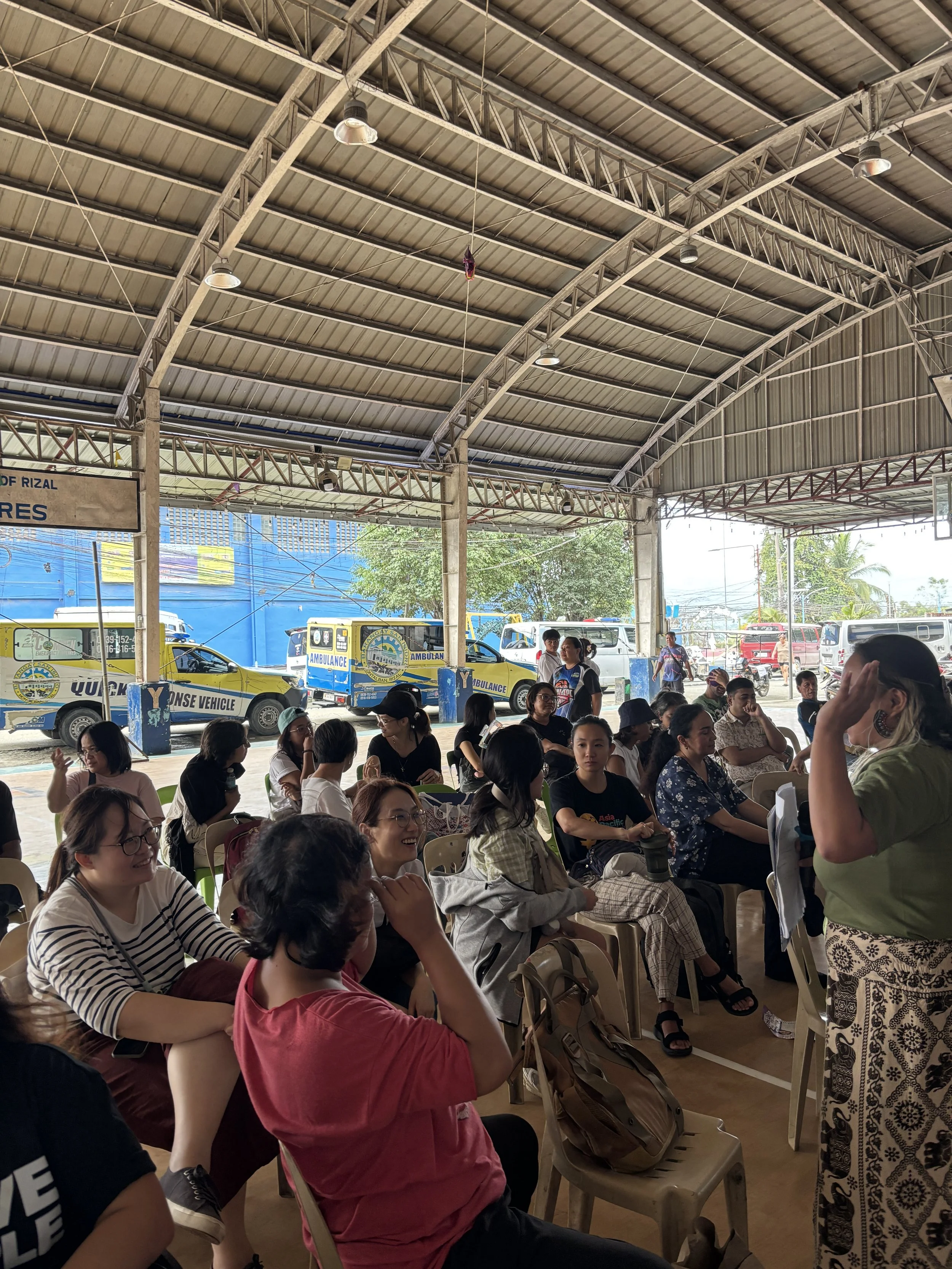Regional Migrants’ Summit participants visit returned migrant community in Rizal province in the Philippines












At the outskirts of Metro Manila, returned migrants from the Middle East raise their voices for rights protection and against labor export.
Following the two-day Regional Migrants’ Summit of the Asia Pacific Mission for Migrants (APMM) and the Asia Pacific Forum on Women, Law and Development (APWLD), 29 participants from various countries in Asia Pacific participated in a half-day community visit to a returned migrant community in Barangay San Isidro, Montalban, Rizal. The community was organized to be the first and biggest chapter of the Samahan ng mga DH sa Gitnang Silangan (Organization of Domestic Helpers from the Middle East), a formation which has been at the frontlines of supporting the plight of Filipino women domestic workers in the Middle East since 2018.
The community visit propelled interactions between advocates and returned migrants where they particularly discussed past experiences they had while working abroad – mostly gruelling stories, and their current conditions back home. Through a deep dive of issues, the participants were able to understand the consequences of the Philippine labor export program – a blanket mechanism that has been undermining migrant rights and welfare since its establishment in 1974.
Exposing stories untold
The first half of the community visit allowed for a space for sharing among community members and participants. Welcoming messages were shared by barangay officials who expressed support to the calls of returned migrants for decent jobs and proper compensation from the sufferings they have endured in the hands of employers and agencies.
Lorelyn Anajao of SANDIGAN Philippines also gave an opening remark, highlighting her experiences when she was also a domestic worker in the Middle East. She retraced some of the injustices inflicted against her by her employers and the trauma that came with it. Despite the seemingly hopeless scenario she was in, Lorelyn amplified the need to fight the labor export program collectively that contributes to the further exploitation of poor Filipinos. Lorelyn, with her fierce voice, also urged everyone to drumbeat the calls of Filipino migrants for rights and justice.
Angel Alvarado, daughter of the slain domestic helper in Kuwait, Jenny Alvarado, also shared about the cruel crime that had happened to her mother late last year. Jenny’s cold-blooded case shows the deep disregard on migrant domestic workers by both sending and receiving countries. Her death, which has not been investigated properly since January 2025, reflects the structural neglect that governments do to many vulnerable women who go abroad. Moreover, the family of Jenny and many other families of abuse victims are left in the dark with no means of survival and holistic support from the state.
More stories and questions were told by both participants and community members through small group discussions. Mixed emotions were felt throughout the visit as there were instances when returned migrants had to share their negative experiences. But amidst this is a strong hope and stance to fight the labor export program together while continuing to address the gaps in social services. This is successfully being actualized through the Barangay San Isidro migrant desk which also responds to the needs of 11 other barangays nearby.
Never backing down
The sharing ended with a lunch in the community where participants were able to further bond with the returned migrants from SANDIGAN Montalban Chapter. Hearty laughs and light conversations were shared through a good meal in the Barangay Hall of the community.
An assessment was done by the participants by the end of the visit where they shared their takeaways. This discussion further cemented and centered the need to raise and link the issues of migrants in official policy spaces at the national and regional levels. It has become fundamentally clearer and urgent as well to demand accountability from sending and receiving countries for their gross neglect of vulnerable communities. Injustices like the one experienced by Jenny Alvarado are wake-up calls to reform and even junk some migration policies and mechanisms that only serve the interests of agencies and governments.
Despite and because of many negative practices in the migration regime, collective action to counter anti-migrant structures remains to be a rallying strategy for both grassroots organizations and advocates. Gina Ren of SANDIGAN, in her closing speech at the community visited, echoed the same point of continuing head on with the migrants’ struggle. With mutual support from allies, migrant communities are bound to change the outdated and, many times, unjust system of migration happening within and outside the Philippines. Indeed, the community visit opened up a space for this possibility.
